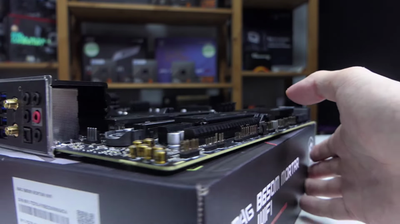
My impressions of the MSI PRO B650M-A WiFi Motherboard (DDR5) (2024)
My thoughts on the MSI PRO B650M-A WiFi Motherboard: ProSeries, DDR5, performance, cooling, BIOS features.
Introduction
I recently built a new PC and chose the MSI PRO B650M-A WIFI motherboard as its foundation. It holds up quite well in terms of performance and value, whether it's used for gaming or managing heavy workloads.
Some photos (click to enlarge)
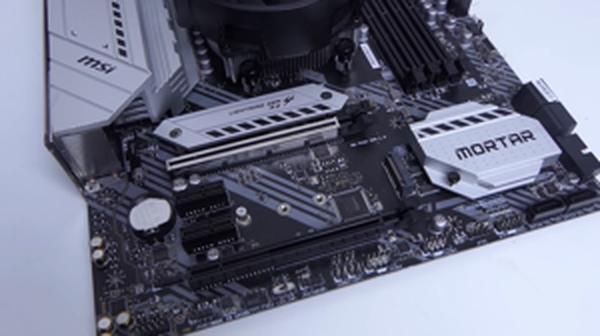
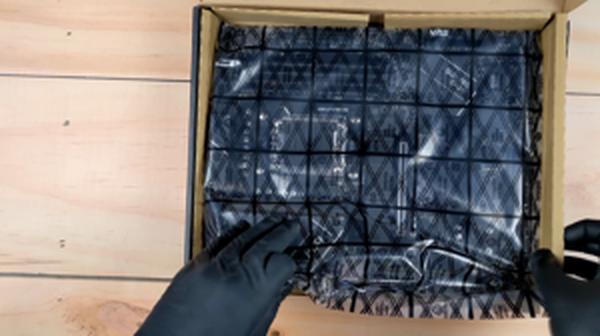
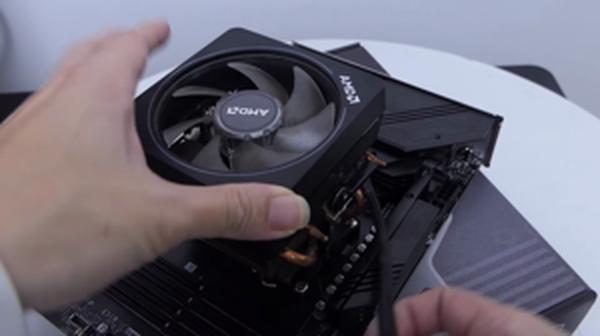
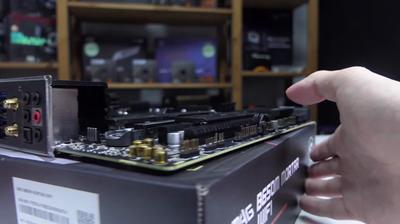
Specs of the MSI PRO B650M-A WiFi ProSeries Motherboard
- Release Year
- Brand
- Chipset Type
- Compatible Devices
- Cpu Socket
- Memory Clock Speed
- Memory Storage Capacity
- Model Name
- Platform
- Ram Memory Maximum Size
- Ram Memory Technology
Prices
Performance and Value Balancing Act
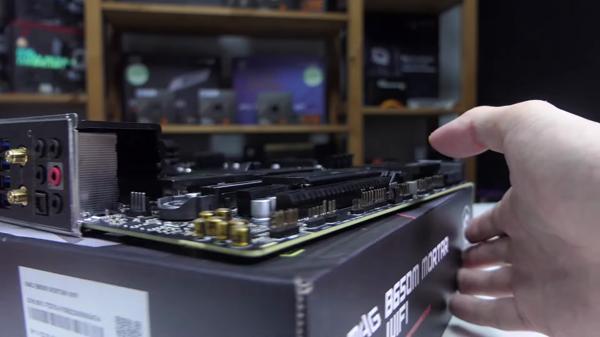
As someone who values a solid performance to price ratio, the MSI PRO B650M-A WIFI motherboard has mostly hit the mark in my book. Finding the sweet spot between features and expenditure can be a bit of a tightrope walk, but I've found this board manages to walk it rather well. Here are some key points that I've noted:
The compatibility with AMD Ryzen 7000 Series Desktop Processors guarantees that I'm running on some of the latest CPU technology.
Support for DDR5 Memory and the high memory clock speed of 6400 MHz has a major impact on system speed and responsiveness for multitasking, which is crucial for my productivity.
The Memory Boost technology offers peace of mind regarding the stability and performance of the system, as does the Core Boost tech which supports the heavier CPU loads I occasionally need to deal with.
On the downside, I did encounter some quirks. Here's what I wasn't so keen on:
The necessity to flash the BIOS before use was a hassle and made the set-up process more cumbersome than I would have liked.
Some users reported long boot times and random boot issues, something I'm keeping an eye on with my own build.
Despite those drawbacks, my experience remains largely positive. I've appreciated the thermal solutions which keep the system cool and stable under load, even though this aspect isn't the main focus here. It's also comforting to know that the motherboard supports up to 128GB of RAM memory, offering ample room for future upgrades.
I did have some reservations about MSI based on reviews regarding hardware compatibility and customer service experiences, but my own interactions have been satisfactory. My advice to potential buyers: stay informed about BIOS updates and don't skip on CPU and memory compatibility research.
From a personal user perspective, I've found that the MSI PRO B650M-A WIFI serves well as a midrange option. It leans towards providing value without skimping on innovation and quality. If you're aiming for a build that strikes that balance, and you're prepared to navigate the occasional BIOS update, this motherboard could be the right pick to anchor your system.
Thermal Management and System Stability

Managing the heat in a computer system can be just as crucial as its computational power. In my experience with the MSI PRO B650M-A WIFI, thermal management and system stability are areas where the motherboard excels, though there are some aspects to be mindful of.
Firstly, let me outline the thermal features:
Premium Thermal Solution: This includes a high-grade 7W/mK thermal pad, which is a big step up from the more standard solutions you might find on other boards.
Additional Choke Thermal Pad: By providing extra padding, the motherboard pushes thermal efficiency even further.
M.2 Shield Frozr: This built-in cooling solution helps maintain optimal SSD performance by preventing throttling due to heat.
With these features in mind, I've noticed my system maintains a stable temperature even under load, which speaks volumes about the effectiveness of these thermal solutions. The fact that the board is designed with multiple M.2 slots and Core Boost technology means that it's expected to handle heavy workloads, and I've seen it deliver in that respect without overheating issues.
However, it's not all perfect. While the thermal pads and M.2 Shield Frozr are great for heat dissipation, careful planning during the build is imperative. I've learned that if airflow within the case isn't optimal, even the best on-board thermal solutions won't be able to perform at their best. Thankfully, using a case from MSI or ensuring you have good airflow can mitigate these concerns.
One slight drawback I've noticed is that while the board sustains intense performance, the cooling mechanisms can sometimes be a bit loud, especially if you're pushing your system to its limits often. It's not a dealbreaker, but silent PC enthusiasts might want to consider additional after-market cooling options for a quieter setup.
From my experience, I've found that sustaining peak system performance, particularly during extended gaming sessions or heavy multitasking, significantly hinges on the board's thermal management capabilities. MSI has ingeniously integrated a cooling technology that, true to its promise, keeps things stable.
In summary, this motherboard scores high marks in the thermal management department, though ensuring proper case airflow and tolerating a bit of fan noise might be part of the package. As someone who values both form and function, these trade-offs are worth it for the performance and stability the MSI PRO B650M-A WIFI delivers.
BIOS Features and Usability for Overclocking

When it comes to overclocking, the MSI PRO B650M-A WiFi motherboard offers an accessible and intuitive BIOS interface that I find quite user-friendly. For enthusiasts looking to get the most out of their hardware, the array of customizable settings is both a boon and a bit intimidating. Here's a quick rundown of the BIOS features related to overclocking:
Core Boost technology, which automatically optimizes CPU performance for each core.
Advanced Memory Boost options for finetuning DDR5 frequencies and timings.
Memory Try It! feature which provides presets for memory overclocking, a neat shortcut to stable performance gains.
CPU and Memory Overclocking with detailed control over voltages and multipliers.
While the BIOS provides a solid foundation for pushing your system beyond its limits, it does have some drawbacks. For one, new users might find the sheer number of available options daunting, as there's a steep learning curve to fine-tuning performance without compromising stability.
Moreover, as updates roll out to address emerging hardware compatibility, it's crucial to keep your BIOS up to date. On occasion, updates can reset your custom profiles, meaning that keeping notes of your preferred settings is essential. Also, depending on the hardware, there can be long boot times which might prove frustrating for those accustomed to snappy start-ups.
User support is another factor to consider. It's comforting to know that there's an active community of MSI users and an official support network that can help with troubleshooting – especially handy for those times when an overclocking experiment doesn't go as planned.
Here's a Markdown list of the most glowing attributes of the BIOS in terms of overclocking, as well as some potential cons I've observed:
Pros:
Comprehensive Control: Rich set of overclocking features for those who want to squeeze every drop of performance from their hardware.
Streamlined Interface: Despite the complexity, the BIOS is organized, making navigation relatively straightforward.
Supportive Community: Access to MSI forums and support, providing a lifeline when needed.
Cons:
Complexity for Beginners: Might be overwhelming for newcomers to overclocking.
Update Cycles: BIOS updates can wipe out custom settings, requiring vigilance and backups.
All these features provide keen overclockers, like myself, with the tools needed for customization and performance tuning. Yet, it's wise to approach with caution - the road to overclocking success is paved with the need for both knowledge and patience. After all, reckless tweaking can lead to system instability or permanent damage, so ensure you have a clear understanding of each setting's impact before making changes.
The PRO B650M-A WiFi strikes a balance between advanced features and usability. It's poised to be a good fit for those with a dedication to learning its intricacies and a dash of caution. My experience, backed by a couple of successful overclocking sessions, leaves me fairly satisfied, though I'm always careful to keep those potential BIOS updates and their sporadic nature in mind.
Connectivity and Future Proofing

In terms of connectivity and future-proofing, the MSI PRO B650M-A WiFi motherboard certainly brings a lot to the table. The inclusion of Wi-Fi 6 is a major plus, ensuring that users can experience the benefits of faster speeds and improved wireless connectivity. It's a feature I can't overlook, especially when thinking about the lifespan of my build. Here's a quick rundown of what stood out to me:
Wi-Fi 6 Support: For wireless connectivity.
Triple M.2 Slots: For future storage expansion.
DDR5 Compatibility: To leverage faster memory speeds.
Latest BIOS Out of the Box: Saves time on updates for new CPUs.
For a mid-range motherboard, I'm impressed with these aspects. Having three M.2 slots is a boon for anyone looking to expand their storage solutions down the line. It’s gratifying to know that adding more NVMe SSDs won’t be a hassle. I've already been able to double my storage without thinking twice.
I'm also keen to point out the DDR5 memory support. It gives a clear path for upgrading RAM to the latest standard, securing longevity for my setup. With rapid advancements in software, knowing my system can handle memory evolution is reassuring.
However, it hasn't been all smooth sailing. While the board is feature-rich, it's worth noting that I encountered unexpectedly long boot times. This was a bit of a downside, although, with some BIOS adjustments, I managed to find a workaround. I hope this gets ironed out in future firmware updates from MSI, as navigating BIOS can be daunting for some users.
Also, the initial BIOS update process could be a bit more user-friendly, particularly for those upgrading to newer CPUs. While not a dealbreaker, it adds an extra step that could be intimidating for less tech-savvy PC builders.
Overall, though, I see the MSI PRO B650M-A WiFi as a solid choice for both current needs and future plans. It blends affordability and flexibility, aspects I hold in high regard. Sure, there are minor drawbacks to consider, but the advantages—like the advanced Wi-Fi capabilities and the ample room for storage expansion—outweigh them for me. If you're on the lookout for a motherboard that won't buckle under the pressure of progress, giving you room to grow and stay connected at top speeds, this one’s definitely worth your attention.
Comments (0)
Share